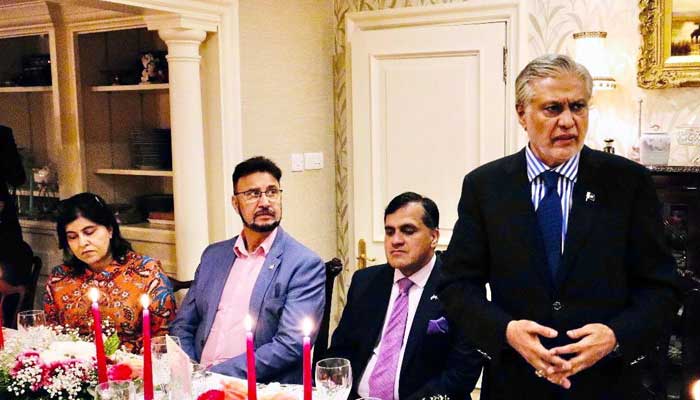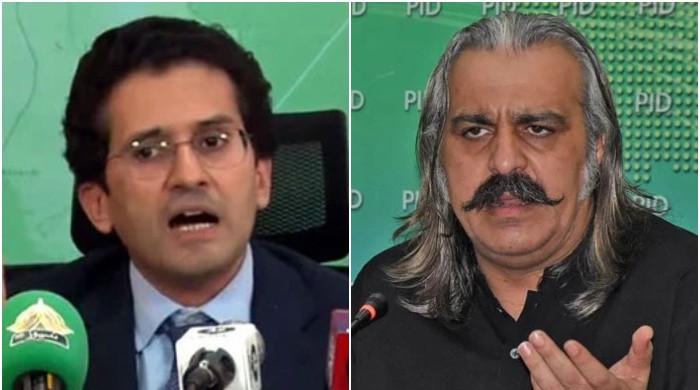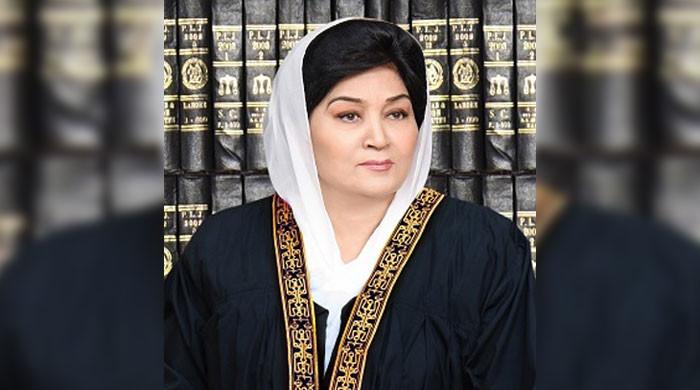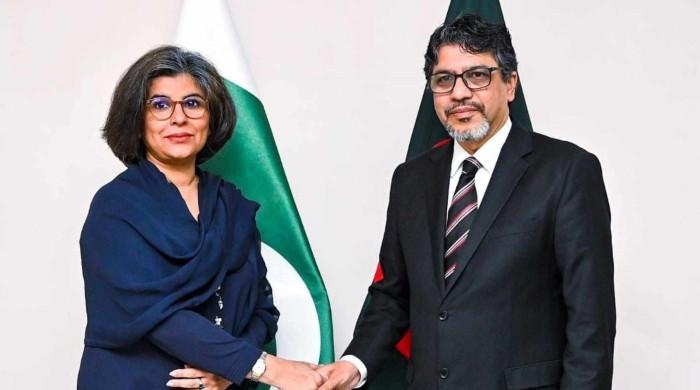Dar alleges PTI govt policies led to resurgence of terrorism, economic crisis
No question of engaging with those who attacked state institutions, says deputy PM in London
September 08, 2024

- Senator Dar says PTI released over 100 hardened terrorist criminals.
- Claims political instability derailed Pakistan’s economic trajectory.
- Deputy PM vows to put country back on road to growth, recovery.
With the country engaged in retaliatory measures following a recent spate of attacks, Senator Ishaq Dar alleged on Sunday that the Pakistan Tehreek-e-Insaf (PTI) government’s policy of 'appeasing and rehabilitating' extremist groups contributed to the resurgence of terrorism.
Dar, who is the Deputy Prime Minister and also the Foreign Minister of the country, made these remarks during an interaction with British lawmakers of Pakistani origin at a dinner hosted by the High Commissioner Dr Mohammad Faisal at the Pakistan House in London, said a statement issued today.
The dinner was attended by the Deputy Speaker House of Commons Nusrat Ghani, Yasmin Qureshi (MP), Lord Qurban Hussain, Baroness Nosheen Mubarak, Lord Zameer Chaudhry, Baroness Sayeeda Warsi, Baroness Shaista Gohir, Mohammad Afzal Khan (MP), Naseem Shah (MP), Imran Hussain (MP), Tahir Ali (MP), Zubair Ahmed (MP), Adnan Hussain (MP), Mohammad Yasin (MP) and Ayoub Khan (MP).
Dar informed the audience that during the Pakistan Muslim League-Nawaz (PML-N) government from 2013 to 2017, terrorism was contained at an immense cost of blood and national exchequer.
However, the previous government's policy of appeasing and rehabilitating extremist groups, such as the Tehreek-e-Taliban (TTP), and the release of over 100 hardened terrorists, led to a resurgence of terrorism, he noted.
The nation has been reeling under rising violent attacks since the Taliban rulers returned to power in Afghanistan in 2021, particularly in the bordering provinces of Khyber Pakhtunkhwa (KP) and Balochistan.
The two most vulnerable provinces saw a sharp rise in deadly attacks last month, according to data from the Pak Institute for Peace Studies (PIPS).
The digital database of security incidents managed by the Islamabad-based think-tank suggested an alarming situation as the number of attacks jumped from 38 in July to 59 in August. These incidents included 29 attacks in KP, 28 in Balochistan, and two in Punjab.
The most recent and deadliest among the 28 attacks in the southwestern province resulted in 57 deaths and injuries to another 84 people.
Meanwhile, the deputy premier briefed the British Pakistani lawmakers on the government's roadmap to economic revival.
He recalled that during the Nawaz Sharif-led government from 2013 to 2017, Pakistan had grown to the world’s 24th-largest economy and was projected to become a member of the G20. “However, political instability, beginning in 2018, had derailed Pakistan’s economic trajectory,” he regretted.
Dar stressed that the government was committed to putting Pakistan back on the road to economic growth and development that the country had been charting in 2017.
“The difficult and politically unpopular measures taken by the recent government are now beginning to bear fruit,” he said, adding that the government has brought down inflation to a single digit and narrowed the current account deficit while stabilising the currency.
“There was across-the-board institutional support for economic reform and the Special Investment Facilitation Council [SIFC], set up by the government last year, was drawing significant foreign investors' interest in Pakistan’s energy, mining, IT and agriculture sectors,” he added.
The foreign minister also asked the Members of Parliament for suggestions on how the government could draw more British foreign direct investment in Pakistan and increase the bilateral trade volume.
Highlighting Pakistan's recently introduced new visa-free policy to encourage Pakistani expatriates to visit Pakistan, Dar stressed that it was important for young British Pakistanis to stay connected with their roots.
Referring to Imran Khan-founded party, the Deputy PM said that there could be no question of engaging with those who “attacked state institutions and used international forums to undermine the national interest.”
He also vowed that the government would not allow any internal or external elements, intent on fomenting political instability, to derail Pakistan’s journey to development and prosperity.
Dar also thanked the British Parliamentarians for raising the issue of atrocities inflicted upon the innocent people of Indian Illegally Occupied Jammu & Kashmir (IIOJ&K) and the people of Gaza.











